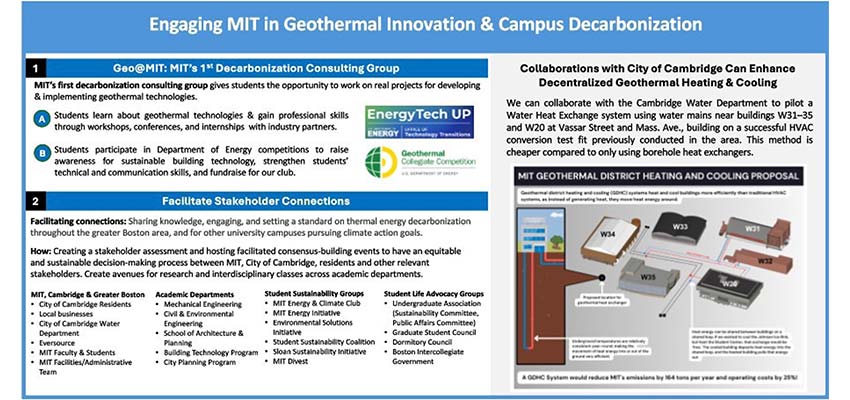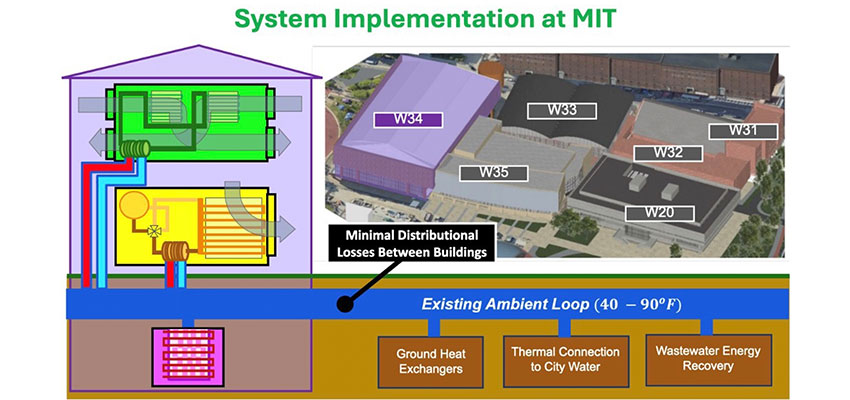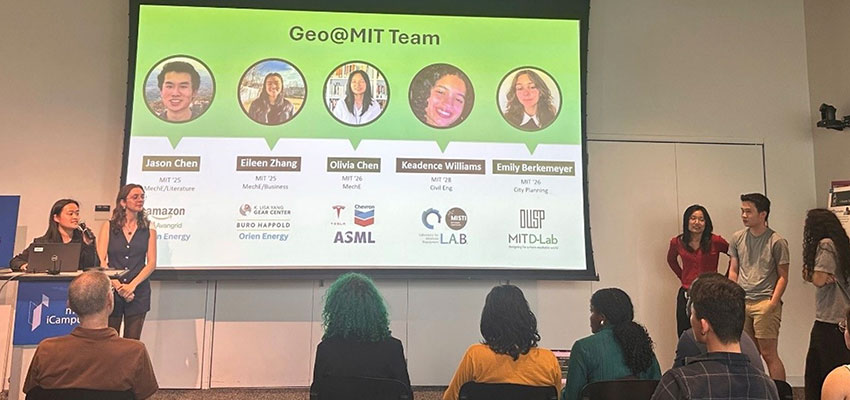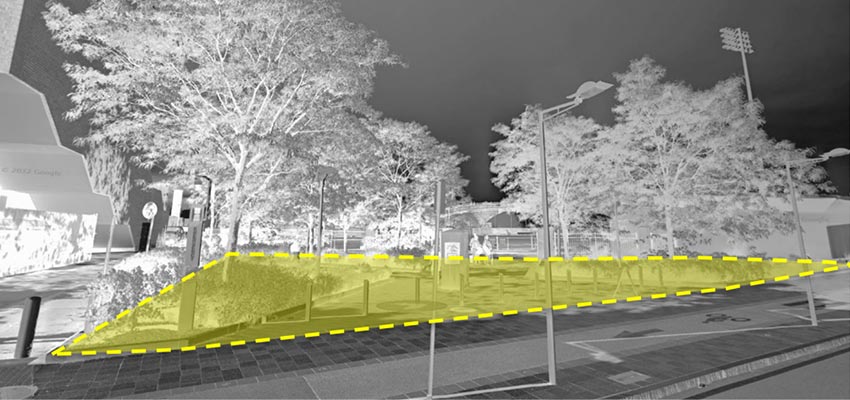
MIT D-Lab class
Thermal Energy Networks (EC.S06 / EC.S11) Spring 2025
Background
In the City of Cambridge, the building sector is responsible for 82% of emissions in the community (SCD, 2015). MIT has committed to achieving net zero by 2026 and achieving zero direct emissions by 2050. Currently, the majority of campus emissions come from building heating and cooling (Chandler, 2022).
Opportunity
To achieve these goals, heating and cooling will need to be made more efficient and sustainable. This project builds on a Test Fit study of a cluster of buildings near the corner of Vassar and Massachusetts Avenue (W31-35, W20).(mitten.earth “Full Report”). In this current investigation, we propose consideration of an energy transfer station that would access drinking water mains to supply thermal energy to a circulating ambient water loop. We propose using heat transferred through double-wall heat exchangers with thermal storage backup available if the water temperature of the piped water is too low.

Goals of this project
I. Groundwork for DWET Pilot Approval:
- Conduct a research study of DWET at MIT.
- Submit it to the Massachusetts Department of Environmental Protection for approval.
- Conduct an equivalent DWET study at a Municipal System i.e. the Cambridge Water Dept.
- Parameters to measure: temperature, pH, chlorine residual, fluoride, flow rate
Considerations for research study
- Before a pilot study would be possible,there needs to be a research study (i.e. a lab at MIT) that could involve thermal modifications of drinking water for experimental purposes.
- Because Cambridge Water Department needs to continuously maintain chlorine residual for its customers, thermal changes of drinking could entail licensing/regulatory issues. Therefore, temperature changes of drinking water would require rigorous chlorine residual testing.
Study would need at minimum:
- A lab with certifications in harmony with regulations for water sampling and quality
- Record of inflow and outflow water temperatures and quality at times of sampling and testing
Precedence and methodology: Oak Ridge National Lab, Buck Elementary Study (Smith and Liu, 2018) Notable findings from this study were that concentrations of dissolved substances, including chlorine residual concentrations, did not change between inflow and outflow due to temperature changes.
II. Stakeholder engagement & bridging understanding
Engage with universities and cities that have existing water heat exchanger systems including Stanford University, Colorado Mesa University, Delft University, False Creek Neighborhood Energy Utility and Enwave Lake Ontario Toronto Deep Lake Water Cooling system (Kingston, 2022)
Important initial collaborators
- Cambridge Water Department
- Massachusetts Department Environmental Protection – important for no water supply contamination
- MIT
- MACA alumi/Geo@MIT student group
(See top of page for segment of Geo@MIT iCampus poster for full stakeholder breakdown.)
MIT iCampus Competition: campus engagement prize competition for projects that improve campus and student life. The competition had three rounds and the Geo@MIT team was selected as top 6 finalists out of over 20 MIT teams.

Works cited
- Sustainable Cambridge Dashboard, “Buildings.” 2015, sustainabilitydashboard.cambridgema.gov/category/buildings. Accessed 8 May 2025.
- Chandler, David. “MIT Accelerates Efforts on Path to Carbon Reduction Goals | MIT Sustainability.” Mit.edu, 12 Sept. 2022, sustainability.mit.edu/article/mit-accelerates-efforts-path-carbon-reduction- goals. Accessed 8 May 2025.
- Kingston, Ryan. “Massachusetts Leading by Example Program - Case Studies Campus Decarbonization.” Mass.gov, 2025, www.mass.gov/doc/campus-decarbonization-fossil-fuel-transition-examples/ download. Accessed 8 May 2025.
- Smith, Ellen, and Liu Xiaobing. “Evaluation of the Impacts of Heat Exchanger Operation on Quality of Water Used as Heat Source and Sink | ORNL.” ORNL, June 2018, www.ornl.gov/publication/evaluation-impacts- heat-exchanger-operation-quality-water-used-heat-source-and-sink-0. Accessed 8 May 2025.
Contact
Susan Murcott, MIT D-Lab Lecturer


